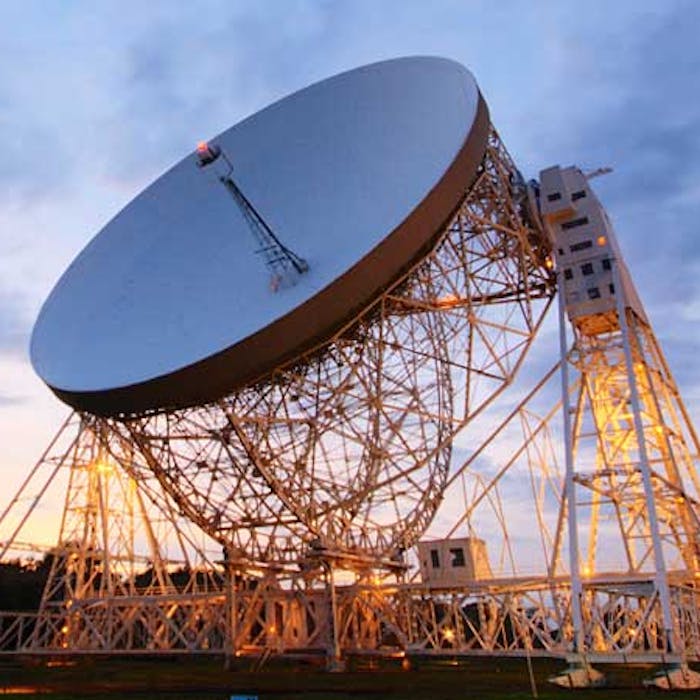
Jodrell Bank Observatory - home of Cheshire's pioneering Lovell Telescope
Jodrell Bank Observatory in Cheshire houses the remarkable Lovell Radio Telescope that was completed in 1957, as the largest steerable dish telescope in the world. It was awarded UNESCO World Heritage Site status in 2019. Although the centre still operates as a working science site under the University of Manchester, visitors are encouraged, and there has even been an annual science & music festival held there.
The Observatory actually hosts a number of radio telescopes, and is part of the Jodrell Bank Centre for Astrophysics at the University of Manchester. Radio telescopes were developed as a valuable way of exploring the cosmos as they are tuned in to the radio end of the electromagnetic spectrum and can be used by day or night.
The observatory was originally established in 1945 by Bernard Lovell, a radio astronomer at the University of Manchester, to investigate cosmic rays following his work on radar during the Second World War. It has since played an important role in the research of meteoroids, quasars, pulsars, masers and gravitational lenses, and was heavily involved with the tracking of space probes at the start of the Space Age. Lovell was subsequently Knighted, and he died in 2012 aged 98.
The Lovell Telescope is 250 feet in diameter (76 m), which still makes it the third largest steerable radio telescope in the world. There are three other active telescopes at the observatory.
The Jodrell Bank Visitor Centre and the grounds, which include an arboretum, are open to the public. The location is the site of an annual science and music festival - the Bluedot Festival - which offers the chance to hear guest speakers from the world of science and astronomy, as well as enjoy music, films and comedy.
Further reading
Links to external websites are not maintained by Bite Sized Britain. They are provided to give users access to additional information. Bite Sized Britain is not responsible for the content of these external websites.
